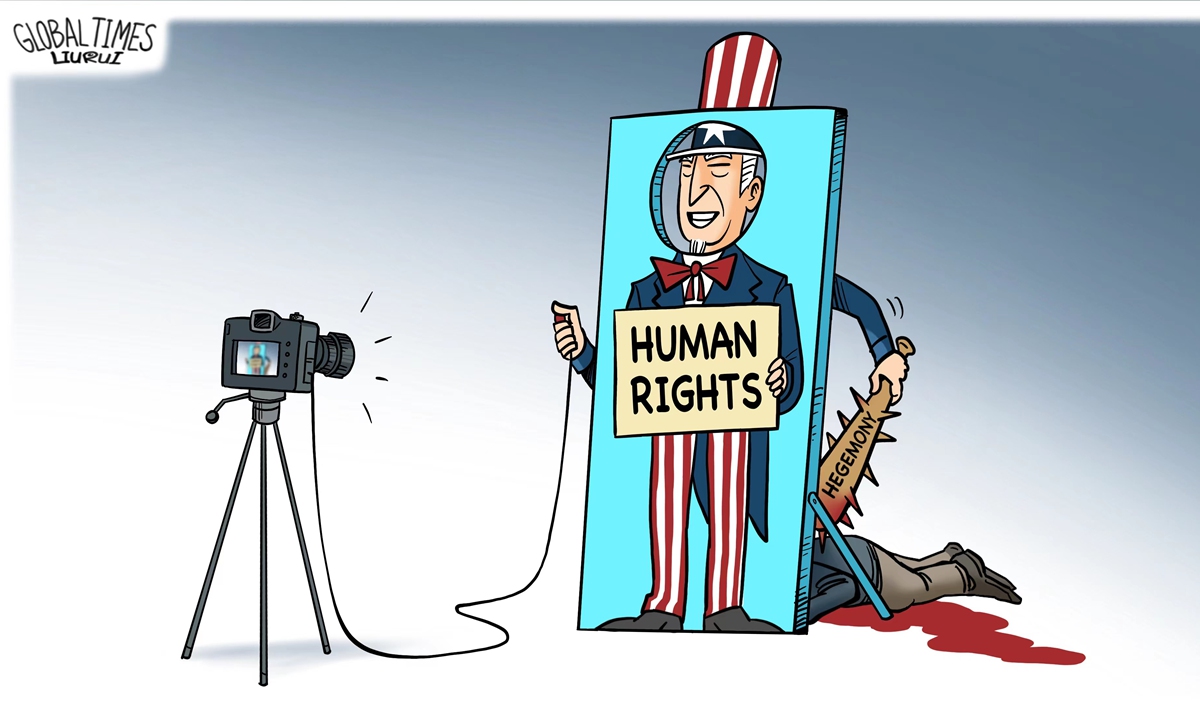Secretary of State Antony Blinken on Friday announced new sanctions against two Chinese officials for “serious human rights abuses” against Uygurs in Xinjiang, as the US also moved to block imports from three additional Chinese companies due to allegations of forced labor. Chinese embassy spokesperson Liu Pengyu said these sanctions were “illegal” and “based on lies,” Reuters reported.
The so-called “forced labor practices involving Uygurs and other minorities in China” is a topic frequently hyped by the US over recent years. It serves as the primary pretext for the US to continuously enact Xinjiang-related legislation and implement corresponding sanctions under the guise of a “legal” framework. On a deeper level, this aligns with the US strategic shift toward the Asia-Pacific, designating China as an imaginary adversary and comprehensively suppressing China, while simultaneously diverting attention away from US domestic issues and maintaining its global hegemony.
The frequent imposition of Xinjiang-related sanctions by the US reflects its mindset and behavior of double standards, utilitarianism, and hegemony, Meng Qingtao, deputy head of the Human Rights Institute at the Southwest University of Political Science and Law, told the Global Times. The US applies double standards both domestically and internationally based on its own interests and ideological criteria, selectively ignoring instances of “forced labor” policies and practices within its borders and among its allies. It turns a blind eye to statements from entities like the Volkswagen, which, through external audit firms, declared no sign of “forced labor” in its factories in Xinjiang. Instead, the US relies on reports from international human rights organizations as well as fabricated stories from alleged informants, to unilaterally assert the existence of so-called “forced labor” in Xinjiang.
The US consistently follows a “utilitarian policy”, which uses sanctions against officials and companies over Xinjiang-related affairs as a means to economically disrupt China’s industrial chain, politically negate China’s effective governance, and ideologically tarnish and demonize China to impede its peaceful rise.
The US has established a global hegemonic system by relying on economic dominance through control of the international monetary system and manipulation of the International Monetary Fund, political dominance through leading the United Nations system, military dominance through military superiority and NATO expansion, and ideological dominance by exporting American-style freedom, democracy, and human rights. The frequent imposition of Xinjiang-related sanctions has once again exposed the true nature of US hegemony.
These sanctions were among a series of actions the US took two days ahead of the 75th anniversary of the Universal Declaration of Human Rights, which outlines the basic rights that global citizens should enjoy, including the right to life, liberty, and personal security. Ironically, on the same day, the US vetoed a UN Security Council resolution demanding immediate humanitarian ceasefire in Gaza. This disregard for human rights in such actions is, in itself, a betrayal of the Universal Declaration of Human Rights. It is unethical, lacks moral boundaries, and exposes the hypocrisy of the US, which has always claimed to care about the human rights of ordinary people, including the right to life, Wang Sha, assistant researcher of Human Rights Institute at the Southwest University of Political Science and Law, told the Global Times.
The US abuse of unilateral sanctions and extraterritorial jurisdiction will inevitably have adverse effects on global development. At a time when the world economy faces significant challenges, and China is actively seeking solutions for global economic development through initiatives such as the Belt and Road, the US is not only suppressing China’s economy but also hindering both its own domestic, and global economic sustainability.
In recent times, the appearance of a seeming easing of tensions and increased cultural and economic exchanges in China-US relations is more of a diversionary tactic by the US – portraying a facade of improved relations while continuing covert actions. Every time the US challenges China’s bottom line, it damages the mutual interests of both countries, reinforces misconceptions about China within American society, and subsequently harms the friendship and sentiments between the two nations, continually escalating the risk of confrontation between China and the US.
For the US itself, its duplicitous actions will erode its judicial credibility and diplomatic authority on the international stage, reinforce its international image as a hegemon practicing power politics, deepen rifts between allies, and ultimately result in shooting itself in the foot.
China has consistently prioritized the fundamental interests of all ethnic groups in Xinjiang, respecting and safeguarding human rights, actively exploring effective measures to combat terrorism and extremism according to law, and achieving significant successes. Actions speak louder than words, and the false narratives surrounding Xinjiang will ultimately be consigned to the trash can of history.
The author is a reporter with the Global Times. maruiqian@globaltimes.com.cn













